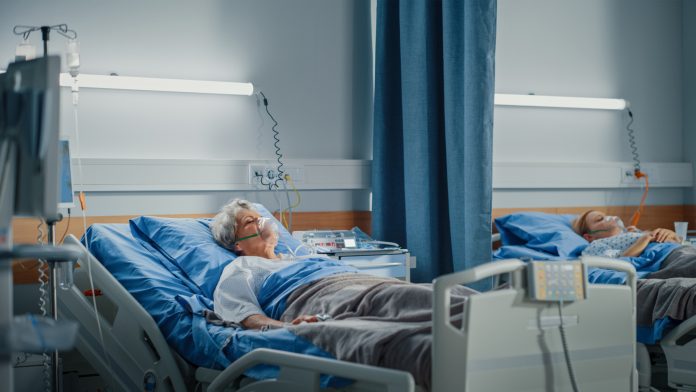
Scientists from the University of Sheffield and Stanford University have identified more than 1,000 genes that may increase the risk of severe COVID-19 infection.
Previous research has suggested that severe COVID-19 can be predicted by age, body mass index (BMI), and pre-existing health conditions; however, genetics are also a crucial factor. The novel study illuminates that there are specific genetic signals in patients who develop more serious SARS-C0V-2 infection and may explain why some people become seriously ill or die compared to others who have few if any symptoms of the disease.
The University of Sheffield and Stanford University team employed machine learning to reveal over 1,000 genes that may cause severe COVID-19 infection that led to patients requiring breathing support or a fatal outcome. Additionally, the study discovered specific types of cells in which the particular genes malfunctioned and is one of the first investigations to associate coronavirus-linked genes to specific biological functions.
Dr Johnathan Cooper-Knock, NIHR Clinical Lecturer in the Department of Neuroscience at the University of Sheffield and co-author of the study, said: “During the research, we discovered the genetic architecture underlying coronavirus infection and found that these 1,000 genes account for three-quarters of the genetic drivers for severe COVID-19. This is significant in understanding why some people have had more severe symptoms of COVID-19 than others.”
The research is published in the journal Cell Systems.
Identifying the cause of severe COVID-19
The researchers employed a range of extensive datasets to understand the influence of genetics on severe COVID-19 infection. The first dataset comprised genetic information from healthy human lung tissue, which enabled the team to locate gene expression in 19 different types of lung cells, such as epithelial cells that line the respiratory tract and are the body’s first line of defence against infection.
The rest of the data was obtained from the COVID-19 Host Genetics Initiative, a large genetic study of COVID-19 patients who are critically ill. The team examined the data for DNA mutations – known as single nucleotide polymorphisms – which may suggest that someone has an elevated risk of severe COVID-19 infection.
The team monitored how often certain mutations occurred in patients with severe infections. The incidence or absence of these mutations in severe COVID-19 patients suggested that those variations may be responsible for the disease.
However, interpreting mutations can be challenging, so the team used other data that outlines which genome regions are essential for different cell types within lung tissue. The researchers overlapped the mutations onto the cell-specific genomes to reveal which genes were dysfunctioning and within which types of cells.
Influence of natural killer cells
Through using their machine learning tool, the team uncovered that severe COVID-19 is strongly associated with a weakened response from two immune cells called natural killer (NK) cells and T cells. The most important are believed to be NK cells and a subtype called CD56 bright.
Dr Cooper explained:” NK cells, which humans are born with and are the body’s first line of defence against infection, are known for their ability to destroy viruses and cancer cells. NK cells also help produce a range of immune system proteins called cytokines. One cytokine, interferon gamma, is a key activator of immune cells. Acting in concert with interferon gamma, NK cells mount an immediate and coordinated defence against viral infections.
“NK cells are like the generals directing the war. They mobilise other immune cells, telling them where to go and what to do. We found that in people with severe COVID-19 infection, critical genes in NK cells are expressed less, so there’s a less robust immune response. The cell isn’t doing what it’s supposed to do.”
Professor Michael P Snyder, the senior author of the research from the University of Stanford, said: “Our findings lay the foundation for a genetic test that can predict who is born with an increased risk for severe COVID-19. Imagine there are 1,000 changes in DNA linked to severe COVID-19. If you have 585 of these changes, that might make you pretty susceptible, and you’d want to take all the necessary precautions.”
The investigators also explained that there are some drugs currently used to treat some cancers that may be able to kickstart sluggish NK cells.
Dr Cooper concluded: “The drugs bind to receptors on the NK cells and trigger them to have a more robust response. Trials of NK cell infusions for severe COVID-19 are underway.”
























